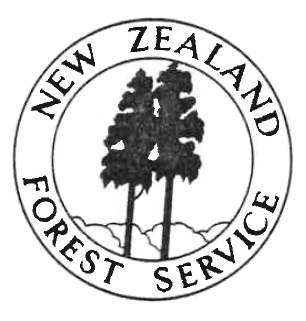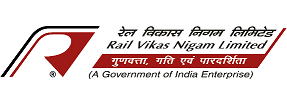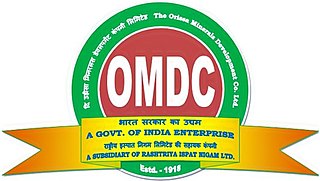Related Research Articles

Te Uru Rākau – New Zealand Forest Service is the agency within the Ministry for Primary Industries that is responsible for the New Zealand forestry sector. It is headquartered in Rotorua.

The Ministry of Energy, Northern Development and Mines (MENDM) was the ministry responsible for developing a safe, reliable and affordable energy supply across the province, overseeing Ontario’s mineral sector and promoting northern economic and community development. The ministry's head office is located in Sudbury. The last Minister of Northern Development and Mines was Hon. Greg Rickford. The Ministry's programs also include the Northern Ontario Heritage Fund, and the creation and funding of local services boards to provide essential services in remote Northern Ontario communities which are not served by incorporated municipal governments.

Coal India Limited (CIL) is an Indian central public sector undertaking under the ownership of the Ministry of Coal, Government of India. It is headquartered at Kolkata. It is the largest government-owned-coal-producer in the world. It is also the ninth largest employer in India with nearly 272,000 employees.

The Ministry of Finance is a ministry within the Government of India concerned with the economy of India, serving as the Treasury of India. In particular, it concerns itself with taxation, financial legislation, financial institutions, capital markets, centre and state finances, and the Union Budget.
Birds Jute and Export Limited (BJEL) is a wholly owned subsidiary of the National Jute Manufactures Corporation Limited, Ministry of Textiles, Government of India. It is headquartered in Kolkata, West Bengal.

The Mining industry of Ghana accounts for 5% of the country's GDP and minerals make up 37% of total exports. Gold contributes over 90% of the total mineral exports. Thus, the main focus of Ghana's mining and minerals development industry remains focused on gold. Ghana is Africa's largest gold producer, producing 80.5 t in 2008. Ghana is also a major producer of bauxite, manganese and diamonds. Ghana has 20 large-scale mining companies producing gold, diamonds, bauxite and manganese; over 300 registered small scale mining groups; and 90 mine support service companies.Other mineral commodities produced in the country are natural gas, petroleum, salt, and silver.

The mining of minerals in Nigeria accounts for only 0.3% of its gross domestic product, due to the influence of its vast oil resources. The domestic mining industry is underdeveloped, leading to Nigeria having to import minerals that it could produce domestically, such as salt or iron ore. The rights to ownership of mineral resources is held by the Federal Government of Nigeria, which grants titles to organizations to explore, mine, and sell mineral resources. Organized mining began in 1903, when the Mineral Survey of the Northern Protectorates was created by the British colonial government. A year later, the Mineral Survey of the Southern Protectorates was founded. By the 1940s, Nigeria was a major producer of tin, columbite, and coal. The discovery of oil in 1956 hurt the mineral extraction industries, as government and industry both began to focus on this new resource. The Nigerian Civil War in the late 1960s led many expatriate mining experts to leave the country. Mining regulation is handled by the Ministry of Solid Minerals Development, who are tasked with the responsibility of overseeing the management of all mineral resources in Nigeria. Mining law is codified in the Federal Minerals and Mining Act of 1999. Historically, Nigeria's mining industry was monopolized by state-owned public corporations. This led to a decline in productivity in almost all mineral industries. The Obasanjo administration began a process of selling off government-owned corporations to private investors in 1999. The Nigerian Mining Industry has picked up since the "Economic Diversification Agenda", from Oil & Gas, to Agriculture, Mining, etc., began in the country.

Rail Vikas Nigam Limited (RVNL) is an Indian central public sector enterprise which works as the construction arm of the Ministry of Railways for project implementation and transportation infrastructure development. It was incorporated in 2003 to meet the country's surging infrastructural requirements and to implement projects on a fast-track basis. It is a ‘Navratna’ CPSE in India under the administrative control of the Indian Ministry of Railways.

The Ministry of Road Transport and Highways (MoRTH) is a ministry of the Government of India, that is the apex body for formulation and administration of the rules, regulations and laws relating to road transport, transport research and in also to increase the mobility and efficiency of the road transport system in India. Through its officers of Central Engineering Services (Roads) cadre it is responsible for the development of National Highways of the country. Road transport is a critical infrastructure for economic development of the country. It influences the pace, structure and pattern of development. In India, roads are used to transport over 60 percent of the total goods and 85 percent of the passenger traffic. Hence, development of this sector is of paramount importance for India and accounts for a significant part in the budget.

MMTC Ltd. is one of the two highest earners of foreign exchange for India and India's largest public sector trading body. Not only handling the export and import of primary products such as coal, iron ore, agro and industrial products, MMTC also exports and imports important commodities such as ferrous and nonferrous metals for industry, and agricultural fertilizers. MMTC's diverse trade activities cover third country trade, joint ventures and link deals and all modern forms of international trading. The company has a vast international trade network, spanning almost in all countries in Asia, Europe, Africa, Oceania, and in the United States and also includes a wholly owned international subsidiary in Singapore, MTPL. It is one of the Miniratnas companies.

The Ministry of Industry, Trade and Tourism (MINCOTUR) is the department of the Government of Spain responsible for the proposal and execution of the government policy on industry, trade and tourism, including among its competences the industrial development and of the SMEs, the promotion and defense of the industrial property, the commercial policy of internationalization and of investments and external transactions, as well as the politics of tourism and the rest of competences and attributions that the legal system attributes to it. Likewise, in coordination with the Foreign Ministry is responsible for the international cooperation on this matters.

Transport for NSW (TfNSW) is a New South Wales government transport and road agency established on 1 November 2011. The agency is a different entity to the New South Wales Department of Transport, a department of the New South Wales Government and the ultimate parent entity of Transport for NSW.
Public Sector Undertakings (PSUs) are public sector companies, which are established and owned by the Government of India or State governments of India. The public sector undertakings are established either by nationalisation or an executive order in case of union government and state government or act of parliament with the purpose to earn profit for the government, control monopoly of the private sector entities, offer products & services at an affordable price to the citizens, implementation of government schemes and to deliver products & services to remote locations of the country.

The Ministry of Heavy Industries is an executive agency of the Government of India. The Ministry entails for promoting the engineering industry viz. machine tools, heavy electrical, industrial machinery, and auto industry and administration of 29 operating CPSEs and 4 autonomous organizations.
In South Africa the Department of Public Enterprises is the shareholder representative of the South African Government with oversight responsibility for state-owned enterprises in key sectors. Some companies are not directly controlled by the Department of Public Enterprises, but by various other departments. Further, not all state owned entities are registered as companies.

The Ministry for the Ecological Transition and the Demographic Challenge (MITECO) is the department of the Government of Spain responsible for developing the government policy on fight against climate change, prevention of pollution, protecting the natural heritage, biodiversity, forests, sea, water and energy for a more ecological and productive social model. Likewise, it is responsible for the elaboration and development of the government policy against the country's demographic challenges.
The Secretary of State for Energy is a senior official within the Ministry for the Ecological Transition of the Government of Spain. The Secretary of State is appointed by the Monarch after being nominated by the Council of Ministers with the advice of the Minister for the Ecological Transition.
Disinvestment in India is a policy of the Government of India, wherein the Government liquidates its assets in the Public sector Enterprises partially or fully. The decision to disinvest is mainly to reduce the fiscal burden and bridge the revenue shortfall of the government. The key engine in achieving growth in India during post-independence was played by Public Sector Enterprises (PSE). Among other responsibilities of PSE's post-independence, the social and developmental obligations of the nation were most important, which resulted in these units escaping competitive race. Later on the activities of the PSU's were divergent, concentrating towards more non-core areas like hotels and consumer goods among others. Further, the public enterprises were used as tools for political and bureaucratic manipulation; which was consequential in low capacity utilization, reduced productivity, failure to innovate, and complex decision-making processes on vital issues of development.

The Orissa Minerals Development Company Limited (OMDC),, is a Public Sector Undertaking company in the Indian states of Odisha under administrative control of Department of Steel and Mines, Government of Odisha. It was founded on August 16, 1918 and is engaged in the mining and production of iron ore and manganese ore. It is a subsidiary of state-owned Rashtriya Ispat Nigam Limited. It is listed at Calcutta Stock Exchange (CSE), National Stock Exchange of India (NSE) and Bombay Stock Exchange (BSE).
References
- ↑ "Our History". Department of Public Enterprises. Archived from the original on 23 August 2010. Retrieved 2 January 2011.
- 1 2 "Department of Public Enterprises to be shut down". South Africa. Daily Investor. Bloomberg. 30 August 2023. Retrieved 31 August 2023.
- ↑ "Gigaba signals yet more taxpayer support for State firms". engineeringnews.co.za. 6 December 2010. Retrieved 2 January 2011.